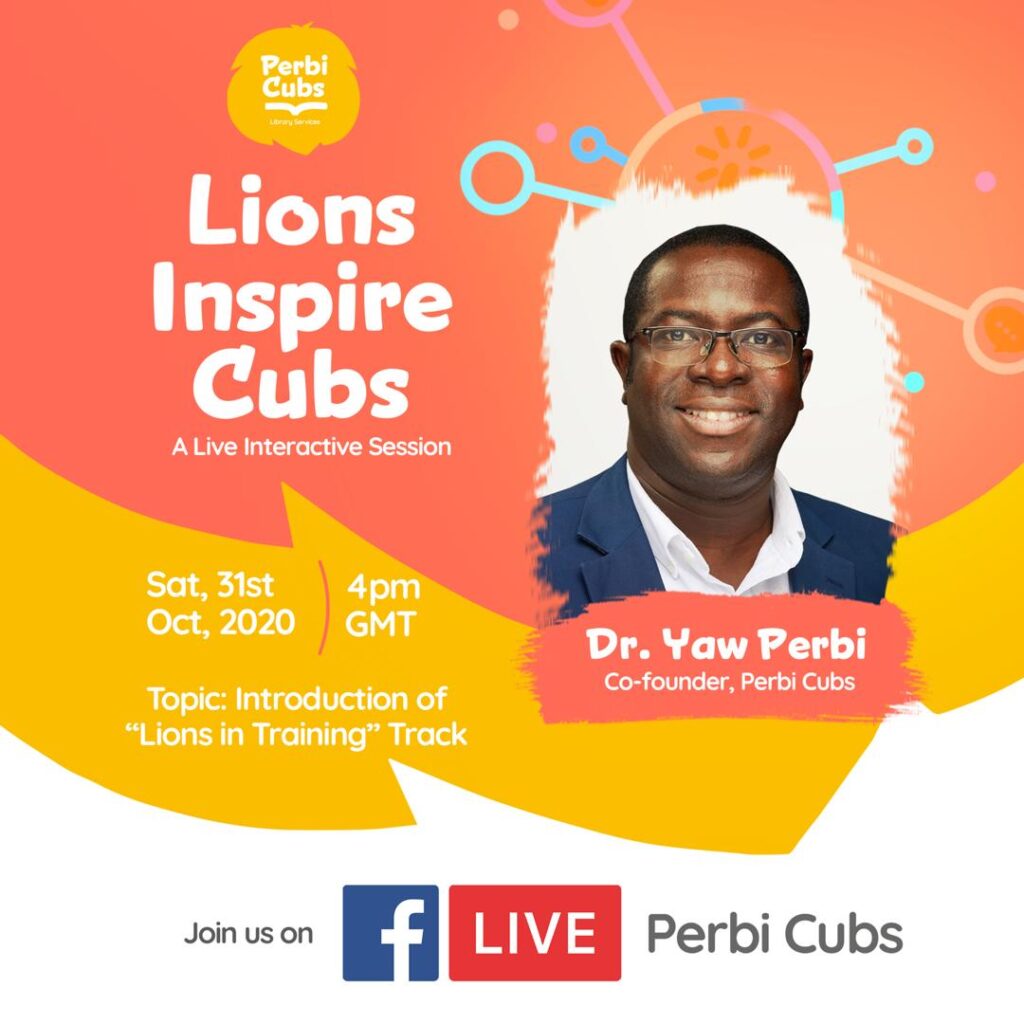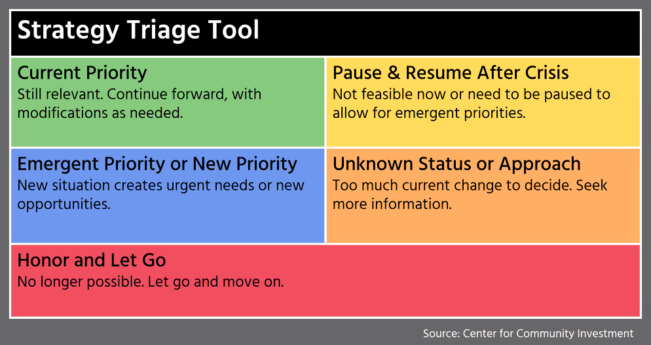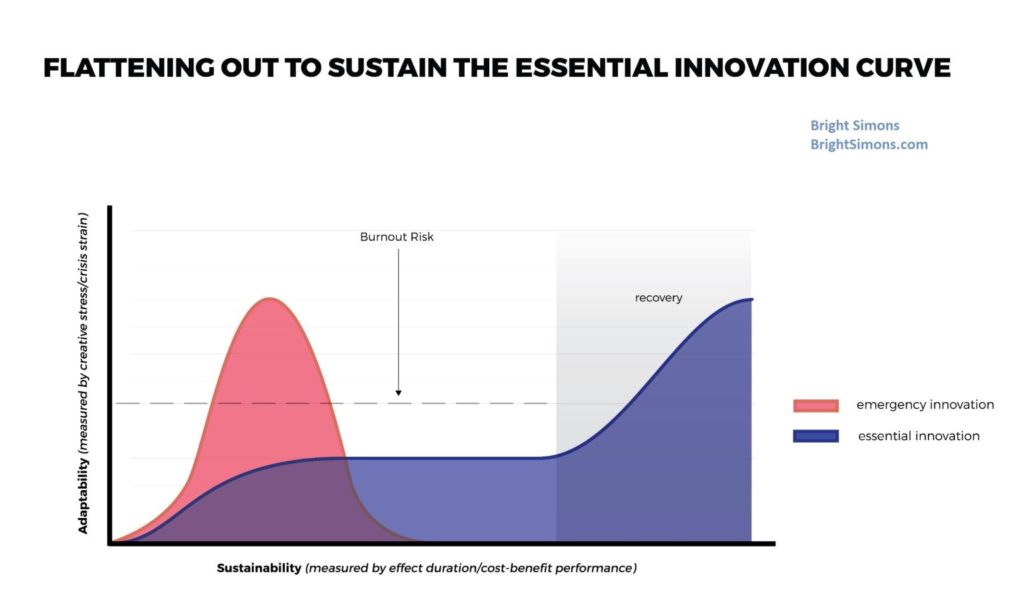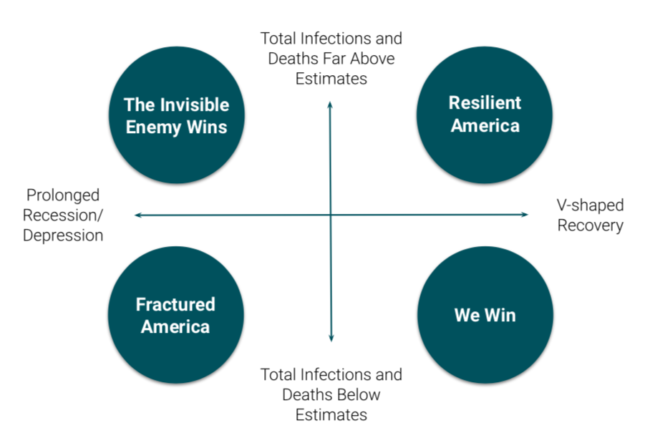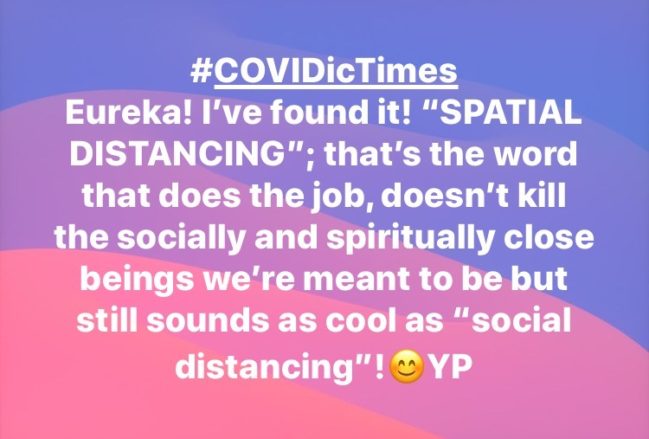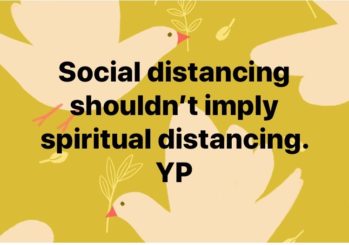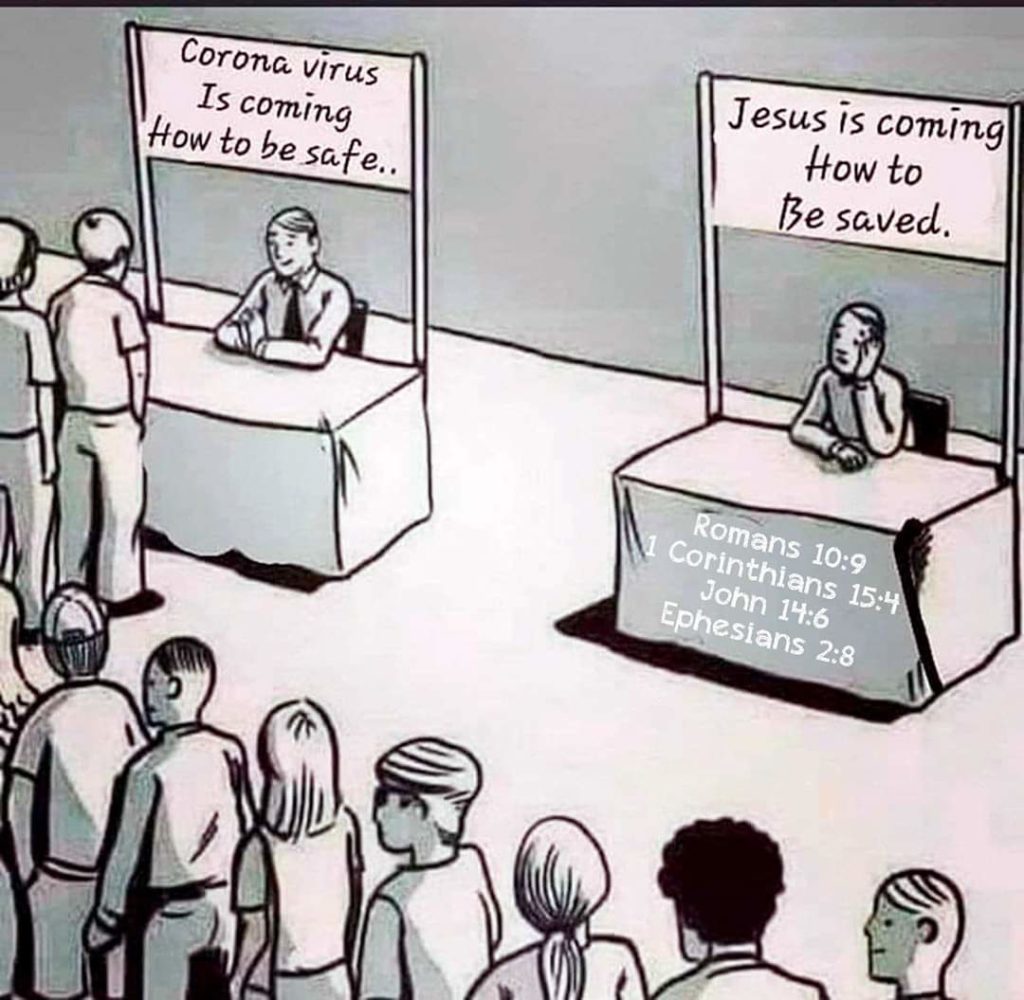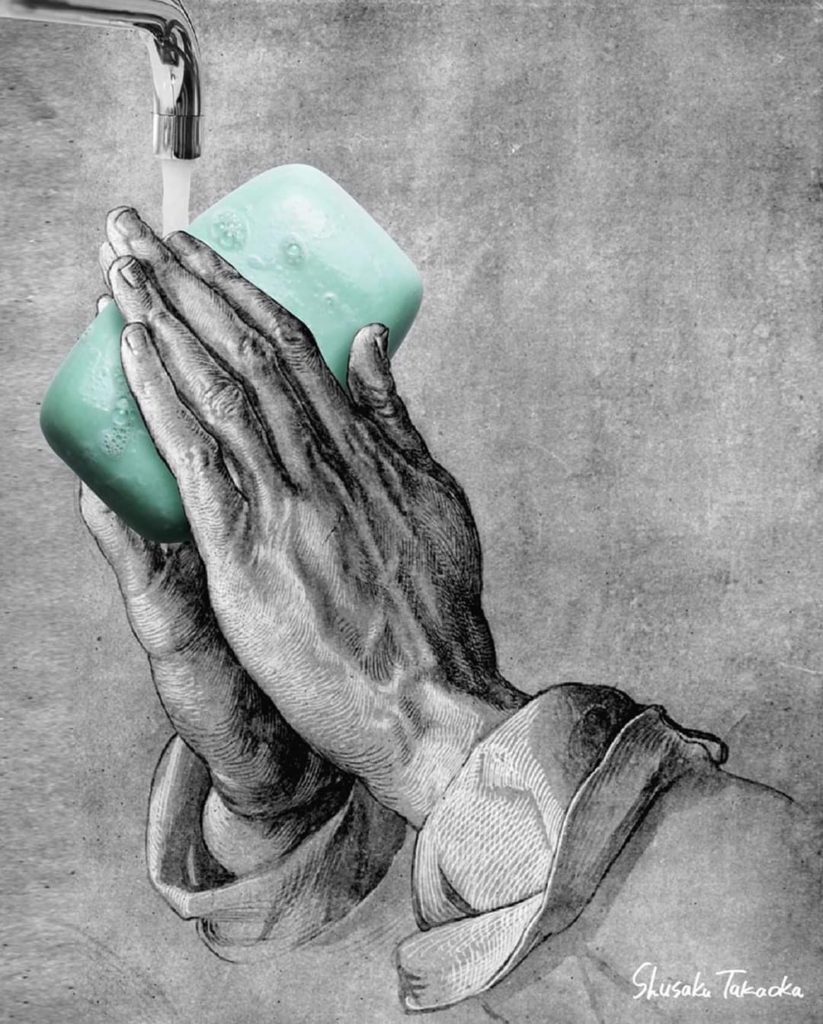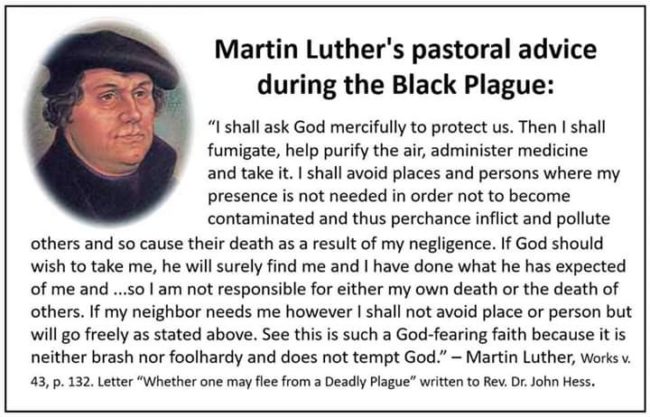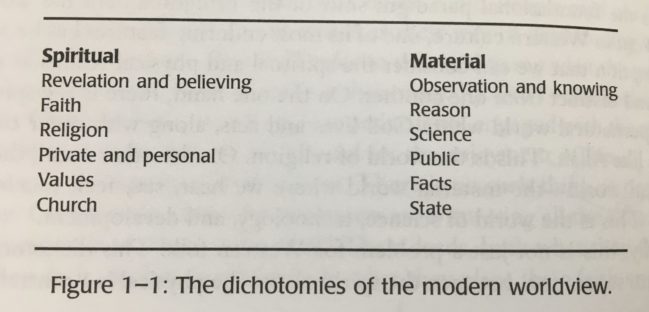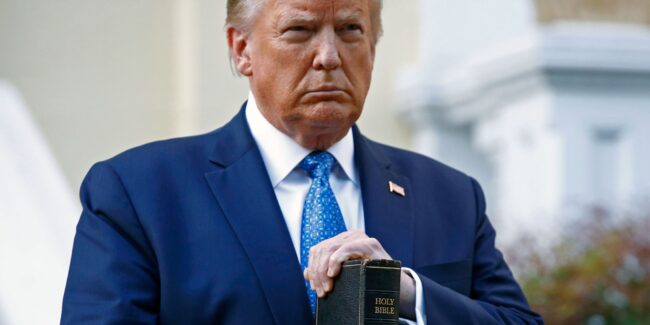
His Hair and Our Beards: Trump, a Global Leadership Crisis and our Children
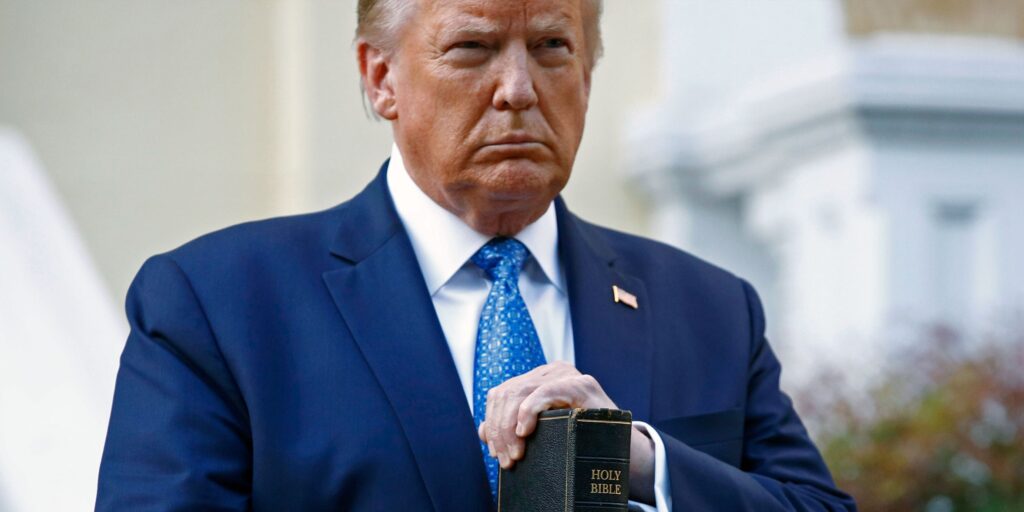
President Trump propping up a book that could flip his life and leadership if he would read and apply it. Same is true for us all! (Photo credit: The New Yorker)
“Stopping Trump is a short-term solution. The long-term solution, and it will be more difficult, is fixing the educational system that has created so many people ignorant enough to vote for Trump.” (Andy Borowitz, a satirist)
Let me begin with a disclaimer: I do not subscribe to the notion that everyone who voted for Trump is ignorant. That would be an unfair characterization. Politics is more nuanced than that. I say there are at least 3 Ps that go into one’s choice, none of which is perfect in any political party and hardly are all three aligned with what is Biblical: the PERSON (as in flag bearer), the PARTY and the POLICIES.
Having said that, how did the most powerful nation in the world end up with such a leadership crisis? I’m not just talking about the nail-biting U.S. electoral college vote count last week and the current situation where a winner has been projected but the incumbent hasn’t gathered what it takes to concede and congratulate. I speak of four years ago when America had to choose between two wannabe leaders of the free world both of whom the electorate had serious reservations about! America was caught between the red devil and the deep blue sea.
And the last four years have portrayed nearly everything I’ve been taught that leadership is NOT exhibited by the man in the White House. Is it competence in inspiring confidence about the Coronavirus pandemic and quenching it or a character of what is good and right and true or care and respect for ‘the other’? Competence, character and care constitute the DNA of leadership. Of course Trump did do some good things. I have even admired his non-political-correctness and tough skin in forging ahead buoyed by the courage of his convictions (no matter how misinformed I think they might be sometimes). By and large, however, I have had to repeatedly tell my children too many things about Trump that leadership is NOT.
THE VAN JONES MOMENT
When I saw Van Jones weep on television that as a parent the defeat of Trump and the elevation of Biden is a testament to the fact that character matters in life and leadership, I very much identified with that. Character matters. Truth matters. Decency matters. And one would think the white evangelical church in America would know better than a journalist.
If the one country that has produced the most world-impacting heads of states, Nobel laureates (390 of them; the UK which is next is at 135), stellar entertainers and astounding professional athletes could face such a gaping leadership crisis then the rest of the world had better watch out. In my Twi language from Ghana, there is a saying that when you see your neighbor’s beard on fire, you had better quickly fetch a bucket of water and place it beside yours (well, hopefully after you’ve helped him doust his!)
OF SHITTY STORIES & SHIT HOLE COUNTRIES
The S word is one that isn’t in my vocabulary. Permit me to get into the gutters in this little stretch so we both appreciate the abyss leadership sunk into these last four years. When Trump was elected I was hopeful. My family’s explanation to a United States border agent that we were crossing over from Canada to upstate New York to check on our investment property had been described by this kid in the border cage as “Such a Shitty Story.” When I wrote about that in January 2017, I was hopeful that a Trump presidency would catalyze the noble dreams Martin Luther King Jnr. had for his four little children (and my six) and not turn into the nightmare many feared. The latter has happened. Blacks still can’t breathe in 2020, George Floyd’s slow slaughter being the epitome of that.
As one born and raised in Africa I have long experienced firsthand that “everything rises and falls on leadership.” Whether as a young medical doctor in Ghana seeing patients die who shouldn’t have or as a United Nations peacekeeping soldier in Cote d’Ivoire beholding with my own naked eyes the ravages of war, there is no other one word that summarizes all that’s wrong with my continent as ‘leadership.’ The sad socioeconomic state in the midst of abundance earned us the disparaging title of “Shit hole countries” by President Donald Trump who ironically has gone ahead to look, sound and act in the very manner people who have misled, unled, disled Africa have.
START EARLY
Leadership is a sacred trust. Twenty years ago I was so concerned that leadership knowledge and mindset, character and skills be acquired early that I co-founded The HuD Group to intervene at the youth level and change the African narrative. Nearly 20 years later I am still convinced that leadership development and training must start early but even earlier: with children. And it begins by calling them “cubs” who will grow into lions and not “kids” who will grow into billy goats gruff (or the trolls in that fairy tale, for that matter LOL).
While at my executive education company that bears my name, YAW PERBI, we’re intervening at the C-Level, Perbi Cubs Library Services is beginning from the very roots: with children and from our homes and schools. I’ll tell you why we launched the Lions In Training (LIT) Track at Perbi Cubs only a couple of weeks ago (although we’ve been dreaming about this for a long long time).
WHY LIT?
LIT is the collective attempt of Perbi Cubs and parents who are preparing the next generation to meet the great challenges and opportunities of the twenty-first century and thrive! The LIT track is to help groom our Cubs into holistic Leaders (Lions). The Perbi Cubs reading community knows that the future of our reading Cubs is promising because of the world of opportunities opened to them every day as they open books to read. For sure, readers are leaders.
Reading, however, is necessary but not sufficient.In this light, Perbi Cubs desires to partner parents to nurture Cubs in relevant soft skills that will take them places and form them into young well-rounded leaders of great impact. Research shows that a leader is developed over the entire course of their life: from womb to tomb. It is never too late to start teaching, learning and applying leadership skills to everyday life.
Next, I’ll show you HOW we’re going about it. For now remember, Trump’s orange hair is on fire; we all had better get a bucketload of godly, effectual leadership to sit by our beards!
*NB: YAW PERBI serves as consultant, coach and trainer for Perbi Cubs and is not involved in the day to day management of this groundbreaking social enterprise. If you require YAW PERBI’s assistance in executive coaching, management consulting or leadership training reach out to yawperbi@gmail.com.
COVIDic Times: One of the Best Gifts Ever!
So I just came on sabbatical. The best gift of week 1 was sleep–day time sleep! It was good for the body, really good. Then the next week came and its gift really took care of my soul. I got re-connected with my teenage friends from around the world, from every continent! Many of them I had lost touch with for 24 years!
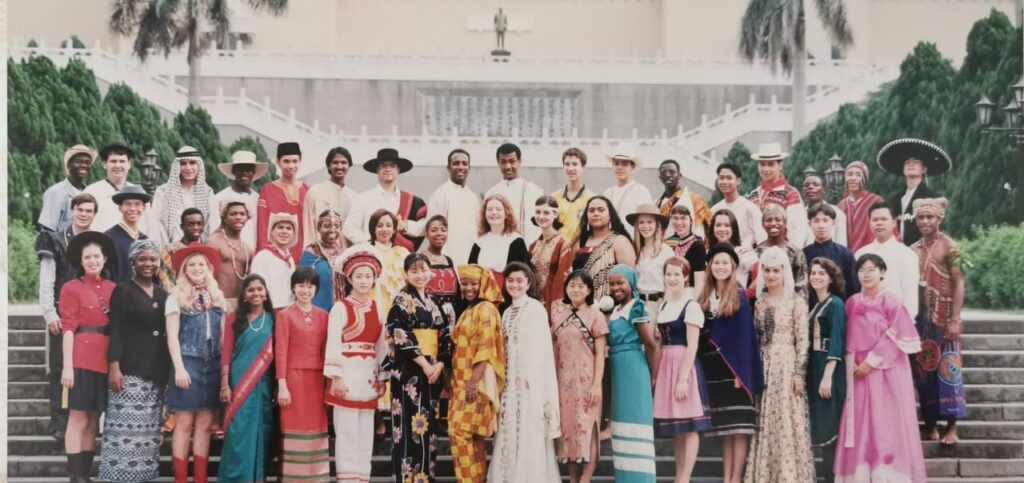
With my 50 friends from 50 different countries in front of the national museum in Taipei, Taiwan. The year was 1996.
THE END FROM THE BEGINNING
I started life backwards. Sort of. Usually people fool around in their teens and when they are all grown up–mature (whatever that means), prim, proper, and seasoned–become ambassadors of their countries. I became an ambassador for Ghana in my late teens, a youth ambassador, together with 50 other World Vision Youth Ambassadors from 50 different countries! As a strapping 18-year old, that experience would irreversibly enlarge my heart; and it has never been able to shrink back into being merely Akan or just Ghanaian or even only African. Never. I’ve been a global citizen since the mid-90s, or a ‘world class Christian’ as my mentor Paul Borthwick would put it, and yet at the time I did not even yet quite understand how much God is a global God on a mission, as I do today.
Connecting the dots, it might no longer come as a surprise then that a couple of decades later I’ve been to 45 countries and lived for a year or more in three, worked with the United Nations, founded and expanded The HuD Group to two dozen countries on each continent, pastored an English-speaking Chinese church in a French city (Montreal) in North America (Canada) and spent my last seven years as president of International Student Ministries Canada, empowering international students to impact the world through Jesus Christ. WVYA was my second experience as an international student, the first being as an exchange student from Achimota School in Accra to Ballard High School in Louisville (Kentucky, USA), the year prior. Being a World Vision Youth Ambassador in 1996 is a gift that keeps giving, like this last couple of weeks!
THE CHANG CHALLENGE
How I got selected as the World Vision Youth Ambassador for Ghana was a miracle, divine. I will leave that story for another time, lest I digress. WVYA was a phenomenal idea birthed by Dr. Jerry Chang, then World Vision Taiwan CEO to bring together 50 young people from 50 different countries to pursue and promote life’s common grounds, universal values. We would study conflict prevention, justice, peace, unity, reconciliation etc. and embody all of this as we constitute a choir travelling the world with this message of unity in diversity. For six weeks this group would live together as global community doing all the philosophical as well as musical studies, and then for the next six weeks tour Taiwan (the host) and other countries. 1995 was the debut year. In my year, we got to tour Taiwan, the USA (New York, Washington DC, Los Angeles, Seattle), Mexico and Canada. The 1997 cohort’s countries were Taiwan, Japan, USA and Guatemala (I got to do that tour too, as I’ll explain shortly below). In all, the programme run for five years–1995, 1996, 1997, 1998, 1999 and with a combined finale of selected previous ambassadors in 2000–resulting in 245 youth ambassadors from 61 countries in total.
THROW BACK
A couple of weeks ago I was contacted by Claudia Sofia, who was the ’96 Colombia Ambassador in my cohort, that the 1997 year group was planning an online reunion and had requested her and me to co-facilitate. She, together with a few of them, did such a splendid preparatory job that I didn’t have much to take care of, really. The thing about Claudia and I is that we were the two out of our group of 51 in 1996 who were selected by the WVYA staff and invited back as staff interns for the following year’s programme so we are very familiar with both 1996ers and 1997ers. Claudia and I reunited about eight years ago when her family temporarily relocated to Canada where I’ve been living and serving with my family since 2009. We have not only been in touch since but have for the last five years worked together on leader development globally and in Latin America in particular through The HuD Group.
It was amazing seeing all these WVYA ’97ers on the Sunday July 5 call; and the cherry on top was the presence of Mama Chang, the 94-year old matriarch, wife of WVYA founder. Inspired by the 1997 gathering, Claudia and I got to work on a WhatsApp group to rally the 51 youth ambassadors of 1996. To cut a long story short, in the last two weeks not only have we found (with CIA, Interpol and Scotland Yard skills) 48 of the 51 Youth Ambassadors and corralled everyone into the same WhatsApp group we have also held two online Zoom reunions (July 11 and July 18), affording everyone to reminisce the past, provide a current update and begin a conversation about re-imagining the future. At the time of writing this, all the other year groups have already met except 1995 (in the offing).

A sample of our classic pre-concert posters. We were famous across Taiwan; then New York City, Washington DC, Mexico City (Mexico), Los Angeles (USA), Seattle (USA), and Vancouver (Canada).
WHY NOW? PANDEMIC BLESSING
The various year groups have had mini reunions here and there over the last two decades; and even in 2015 I was privileged to be part of a cross-cohort mini reunion in Prague but never have we been able to gather this many people together all at once. What’s the difference? COVID-19!! As Rodrigo (Mexico) and Li-Hoon (Singapore) put it bluntly during the first 96ers reunion call: “THANK YOU COVID!”
So why and how come this significant reunion at such a time as this? In the first place, we’re all no longer busy bigwigs criss-crossing the planet about our all-important affairs. We have every one’s attention and no one’s going anywhere. Secondly, the lockdown’s making many of us begin to feel lonely; we are seeking community, even if it’s online. Thirdly, COVID-19 and its ramifications is making us more contemplative and asking what really matters in life. We’ve been glad to pick up memories and rekindle friendships we inadvertently dropped. Fourthly, this pandemic has changed the way we think! Hitherto, we would’ve been seriously planning a ‘big’ physical reunion with all the limitations of time, air travel expense, visa drama, hosting logistics etc. How come it’s never occurred to us in 24 years to hold an ONLINE REUNION?! How hard is that?! But it just wasn’t in our mental framework. And don’t forget, in 1996 when we were teenagers and formed these relationships, smart phones didn’t exist and the internet and email had barely become available to us commoners. Our brains may have only associated each other with snail mail and a fine opportunity for stamp collection.
But the last reason may be the most important of all. The world has turned pretty ugly in the last little while with bigotry, racism and a certain brand of unrestrained nationalism. All of these have been heightened during this pandemic, coming to a head with the unjust death of George Floyd and the mass protests that it sparked all over the world on every continent, calling for racial equality and justice. As I mentioned on the WVYA ’97ers call, it seems to me that although we all knew our mission of peace, love, reconciliation and unity in the world was important back in the 1990s (after all my sweetheart Duda, for instance, took solace in playing piano among the bombs blasting in the Bosnian war), I still feel Papa Chang had so much vision that WVYA rather is an idea whose time has now come, 25 years later.
It was at WVYA that I learnt not only in song that “we teach the young our difference but look how we’re the same” but lived that reality among 50 other nationals for three months. My conclusion as a (maybe precocious) teenager was: we have much more in common than we are different. In fact, it wasn’t until about six weeks into the programme that the thought first even crossed my mind: I am Black. It hadn’t mattered. At all.

We got to sing the American national anthem at the start of a New York Yankees game. Danny Devito threw the first pitch.
BACK TO THE FUTURE
Danish philosopher Soren Kierkegaard aptly said, “Life can only be understood backwards, but it must be lived forwards.” As I reconnect (in order of recent rediscovery and rallying onto WhatsApp) with Claudia (Colombia), Tom (Uganda/currently domiciled in England), Isobel (Ireland/France), Nayunda (Zambia), Carolina (Hong Kong/UK), Li Hoon (Singapore), Ivyn my roommate (Sri Lanka), Henrietta (Zimbabwe/USA), Isariya (Thailand), Esther (New Zealand), Panha (Cambodia), Ginger (USA), Jeffrey (Costa Rica), Nashipai (Kenya), Joyce (Lebanon/Canada), Wilge (Bolivia/USA), Greg (Taiwan), Lara (Canada/USA), Nino (Georgia), Haime (Philippines), Nelson (Papua New Guinea), Duda (Bosnia & Herzegovina), Yayoi (Japan), Janneke (Netherlands), Arnold (Honduras/Mozambique), Anielka (Nicaragua/USA), Rodrigo (Mexico), Mirjam (Germany), Carlos (Ecuador/USA), Derese (Ethiopia/USA), Sinara (Dominican Republic/Bulgaria), Ariel (Chile), Luis (Guatemala), Pamela (India), Cornel (Romania/Canada), Annie (Malawi), Fikile (Swaziland/South Africa), Pierrick (Switzerland), Young Suk (South Korea), Simon (Bangladesh/Canada), Mpho (Botswana), Davi (Brazil/Uruguay), Romed (Tanzania), Ghassan (Palestine), Angelina (Russia), and Rytha (DR Congo), I’m also connecting the dots.
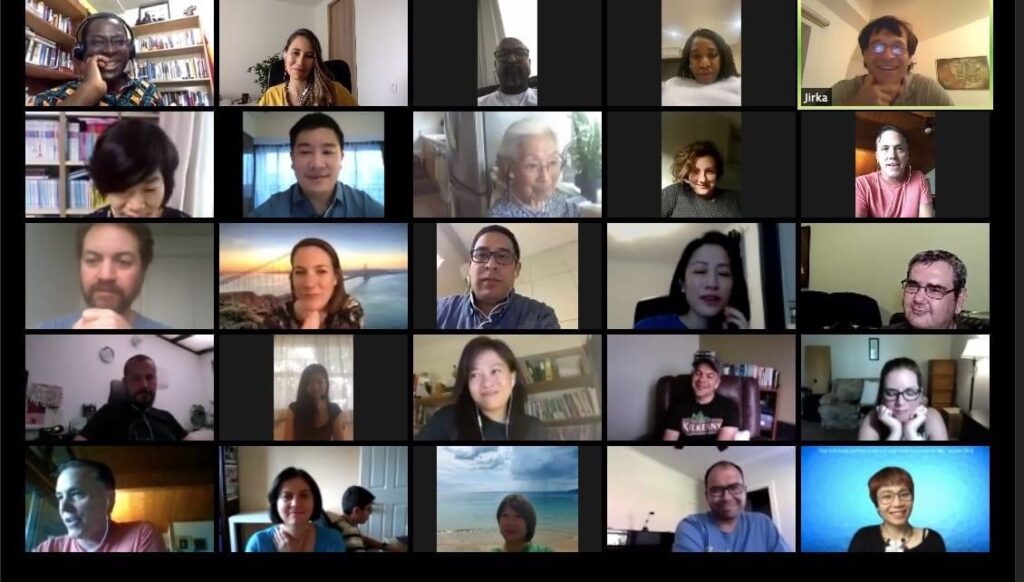
A Zoom screenshot of half of us staff and ’96 ambassadors on the first reunion call on July 11, 2020. This is the kind of image of equality and togetherness that the world ought to be seeing much much of.
I believe Bobby Clinton was right, that “God develops a leader over the entire course of their lives” and He sure lays down “sovereign foundations,” like WVYA, for His purposes in each of us in every generation. I could never have chosen this life, but I love it! More importantly, I love the One who did and all these nationals He has brought my way! Again, my heart expanded and has never been able to shrink back since.
Guess who else was right? Papa Chang. Today we are the wives and husbands, fathers and mothers, professors, CEOs, homemakers, celebrated performers (choral, gospel, jazz, opera), members of parliament, government ministers etc. of change, “doing our little thing in our little corners” as Mama Chang exhorted on the July 11 call. But guess what? Now that COVID-19 has brought all these little embers together, who knows what worldwide bonfire may start. World, watch out! for as Victor Hugo once remarked: “You can resist an invading army; you cannot resist an idea whose time has come.”
COVIDicTimes: Building to last in a pandemic
Everyone knows this is a hard time to live and even more so a jolly harder time to lead. A couple of thoughts and tools have been most helpful in my own leadership struggle to survive the pandemic and tussle to thrive beyond it.
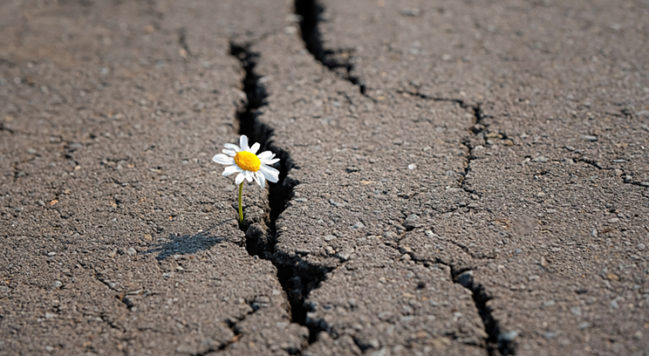
Surviving and even thriving in the very place of crisis (Photo credit: accdocket.com)
This is worth repeating although people in my circles might be tired of hearing me sound like a broken record: a pandemic is a terrible thing to waste. It tends to be once-in-a-lifetime, nay, once every 100 or so years, for crying out loud! That notion of not squandering the opportunity in crises was most eloquently quipped in recent years by Stanford economist Paul Romer at a venture-capitalist meeting in November 2004 in California when he said, “A crisis is a terrible thing to waste.” According to the The New York Times Magazine, “he was referring to the increasing competition that America faces from rapidly rising education levels in other countries.” How much more COVID-19!
As a leadership practitioner in the global sphere, I’ve found myself in various groups discussing both gut reactions and measured responses to the pandemic. I have been particularly intrigued by the notion that COVID-19 is not just a passing blizzard but a long winter, even possibly a mini ice-age. I first heard it from my mentor of nearly 20 years who is currently the Finance Minister of the Republic of Ghana, Ken Ofori-Atta. In his Financial Times article that prayerfully ponders a restoration of GDPs to structural changes that need to happen from digitalization to debt issues, he prophesies: “This is not a passing blizzard, as a friend said; more like a long winter, even a mini ice age.”
Similar words were used by Andy Crouch et al. In summarizing their Leading Beyond the Blizzard: Why Every Organization is Now a Startup article, the above words from Ofori-Atta were echoed: “The novel coronavirus is not just something for leaders to “get through” for a few days or weeks. Instead, we need to treat COVID-19 as an economic and cultural blizzard, winter, and beginning of a “little ice age” — a once-in-a-lifetime change that is likely to affect our lives and organizations for years.”
So how do we live and lead (tactics) in the immediate to survive the vagaries of the current season yet be and do in a way that enables us to thrive beyond the pandemic (strategy). I’ve found the following thoughts and tools most helpful.
1. TRIAGE TO LIVE THROUGH THE PANDEMIC
As a Ghanaian, the month of May holds both the joys of May Day (workers’ holiday; equivalent of Lab(o)ur Day) and the pains of the May 9 stadium disaster that took the lives of 126 people in 2001. As all hands were called on deck that fateful day, ordinary folks drove to my medical school to implore medical students to come over and do whatever we could to help salvage endangered lives from the stampede that had ensued at the capital’s stadium. One of the necessary evils of medical practice is triaging in disaster. This is “the assignment of degrees of urgency to wounds or illnesses to decide the order of treatment of a large number of patients or casualties.” The word “triage” for grouping patients based on the severity of their injuries and the likelihood of their survival comes from the French word “trier” which means “to sort.” As a doctor I can tell you that usually it’s not the ones shouting the loudest that need the most urgent care but often the ones dying slowly in silence, perhaps haemorrhaging away.
What has this got to do with leading well in this COVID-19 pandemic? Well, while the mission of your organization wouldn’t change; your methods not only can, they should. The pandemic offers the kairos moment and clarity to triage, to sort through what must be given urgent care or otherwise. There are things that should become even more of a priority now in this pandemic; some that have emerged out of the blue and others that should be honoured as having served their purpose and honourably let go.
I have personally found the following ‘Strategy Triage Tool’ introduced in an April 30 Vision Synergy online workshop I was in most helpful. Hope you do too.
2. INNOVATE TO OUTLIVE THE PANDEMIC
“Necessity is the mother of invention,” so the old adage goes. And indeed, when the need for something becomes imperative, human beings are forced to find ways to get things done in a manner they wouldn’t have otherwise without this compelling force. I have witnessed more appropriate technological innovations on the African continent since the COVID-19 pandemic than I have my whole life!, everything from solar-powered soap-dispensing hand washing sinks through contact tracing mobile apps to pool testing of lab samples for coronaviruses. In the various organizations I’m a part of, I’ve seen many innovations things from cooking together in real time on Zoom to collaborative music videos of people continents apart.
 My excitement about crisis-birthed innovations was tampered though by wise words from my super smart fellow Fellow of the Africa Leadership Initiative (ALI), Bright Simons. Hear him: “Survival instincts do spur innovation during crises. But some crisis-spun innovations fail to position organisations well for the eventual recovery. For example, improved food canning and other preservation techniques became a mainstream strategy during World War II, but not the distributed “home canning” opportunities some, such as the Bernadin Bottle Cap Company, bet their fortunes on. The strong surge simply fizzled out in the post-war years. If an emergency forces new thinking that leads to new product and service lines, it may be worth your while to contemplate how you can “stretch out” the adaptive investments to sustain your edge into the recovery phase, with your primary focus on scaling when the constraints are less likely to lead to burnout.”
My excitement about crisis-birthed innovations was tampered though by wise words from my super smart fellow Fellow of the Africa Leadership Initiative (ALI), Bright Simons. Hear him: “Survival instincts do spur innovation during crises. But some crisis-spun innovations fail to position organisations well for the eventual recovery. For example, improved food canning and other preservation techniques became a mainstream strategy during World War II, but not the distributed “home canning” opportunities some, such as the Bernadin Bottle Cap Company, bet their fortunes on. The strong surge simply fizzled out in the post-war years. If an emergency forces new thinking that leads to new product and service lines, it may be worth your while to contemplate how you can “stretch out” the adaptive investments to sustain your edge into the recovery phase, with your primary focus on scaling when the constraints are less likely to lead to burnout.”
In demonstrating how we can “stretch out” the adaptive investments of COVID-19 so that our innovations can outlive the pandemic, Simons offers the illustration below.
The excellent COVID-19 analysis in this scenario planning PowerPoint by UC Berkeley professor Steven Weber and Arik Ben-Zvi (CEO of Breakwater Strategy) has also been a cherished gift. It is helpful that the duo have put a lot of thinking into various possible scenarios from total triumph to downright disaster, enabling leaders to conserve our energies to take care of the resulting so whats and then what’s for our own contexts and constituencies. Cross out America and the tool is pretty good for anywhere in the world that has been hit by COVID-19, which is everywhere.
FINALLY
So yes, any crisis is a terrible thing to waste, especially a pandemic of current proportions. In our bid to live and lead, may we do so well in order not only to merely survive the moment but to even outlast it. May posterity arise and salute the Covid-containing and Covid-conquering champions that we are, in the making.
COVIDic Times: Leading in Times Like These.

If ever leadership was needed it is now. (Photo credit: MIT Sloan Management Review)
John Maxwell stated that “everything rise and fall with leadership”. In order words, when it works, thank leadership. When it fails, hold leadership responsible. What has leadership got to do with COVID-19? Everything actually! Infact COVID-19 is so named because it started in 2019! Guess what? This is April 2020 and our leaders are now running all over the place as if we were not giving adequate time to prepare for a response!
Is this not the attitude that is prevalent in the church as well? As I have stated many times, the current generation of leaders manufacture one product very well without having to built a factory – excuses! This is sadly the legacy being handed over to the younger generation. As a matter of fact, the younger folks have mastered it so well to the chagrin of the older folks.
In the light of this pandemic, how should the younger generation respond and prepare for the future?
- Take responsibility and lead – Leadership is work, not a title and definitely not a position. Several lives have been lost and many may still be lost needlessly because leaders of nations looked the other way when they were supposed to formulate a policy, closed the borders and scrutinize every person who is eventually allowed to enter. If this was done, what should have happened is lockout and NOT lockdown.
- Lead with facts not just emotions – Can you believe that even now many people are still of the opinion that they need not do anything extra to be safe? In fact, there probably are more jokes and video clips out there than there are statistical data that could help curtail this scourge. When it comes to consolidating systems, we quickly get tired and wonder why the stress! We suggest a ‘short cut’, an easier approach, anything that provides without effort. What the short cuts lead to, is a longer journey that we wish we never embarked on.
- Lead together not alone – It is very clear that the only way to deal with this pandemic is for everyone to work together. The days of lone rangers are over and as younger leaders we should quickly recognize the power of togetherness. I have often argued that the work given by God to anyone is usually bigger than what the person can do alone! Why? So that in doing the work together with other people, only God takes the glory.
Kehinde Ojo lives in Abuja, Nigeria. He currently serves as the Program Director of the Indigenous Support Development program of IFES (International Fellowship of Evangelical Students) and also Co-Catalyst of the Ministry Fundraising Network of the Lausanne Movement.
COVIDic Times: AN EASTER CELEBRATION WITH A DIFFERENCE!
By
Dr. Susie Ubomba-Jaswa
In a matter of a few shorts weeks COVID-19 has totally changed life as we know it in virtually every nation on the globe? What on earth is going on in the world? Is Someone trying to get our attention? Will we heed?
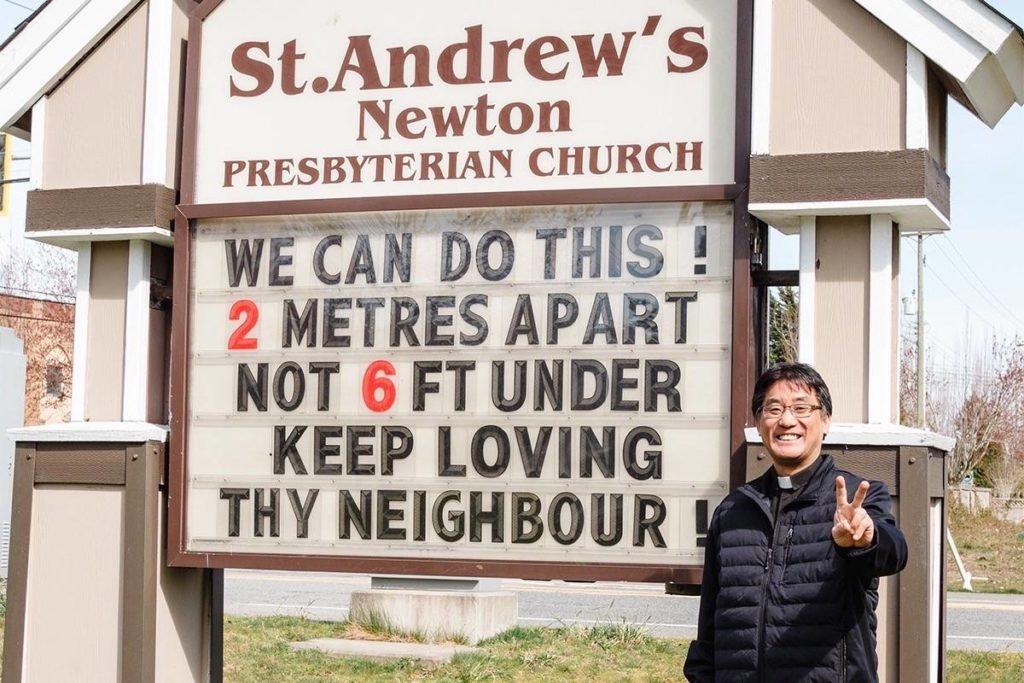
Rev. Geof Jay with one of his many witty COVID-19 related community messages posted in past weeks outside his church in Surrey, BC. (Photo: Olivia R. Jay)
A month ago very few, if any, persons in the world would have imagined or expected this very bizzare, complex, unpleasant global melt down. Within a matter of weeks, the COVID-19 pandemic has essentially changed the health, social, religious, economic, etc. landscape of every nation in the world for the worst.
Previous scarcely used words such as corona, virus, mask, sanitizer, social distancing, self isolation, quarantine, etc. are now on the lips of young and old; rural and urban. Who can even dare mention the current and future positive effects (individuals and organisations that are making and will make millions from the sale of masks, sanitizers, vaccines, all types of supplies, medications, etc.) of this grave pandemic? But clearly the disastrous negative impacts are affecting every individual of the world’s almost 8 billion persons. Even babies born today sadly will not receive the hundred percent joy their parents and relations would ordinarily have welcomed them with. Why? Because the fear and uncertainties at the back of their minds will consciously or otherwise erode some of that happiness. How sad!!!
QUESTIONS GALORE
Naturally the question we are all asking is: what on earth is going on in the world; how come a virus invisible to the naked eye has such a devastating crippling effect on the world with the speed at which people are getting infected and dying? Expectedly a wide range of causes or sources of the infections continue to be spewed all around the world. Thanks to electronic media they move, like the virus, with wild fire.
Whilst the experts are disseminating information about the scientific source and current knowledge of the epidemiology of COVID-19 we are also confronted with tons of messages, videos, pictures, etc. that may be scientific; or not so scientific; half-truths; propaganda, hoax, fake news; etc. Let me try and roughly categorise some of the circulating electronic materials I have read or glanced through:
- Direct plague from God to punish the world: sin is multiplying. Similar to Noah and the Flood; Sodom and Gomorrah; Pharaoh and the Egyptians; Moses and the snakes; numerous plagues mentioned in the Bible.
- The apocalypse: Antichrist; one world religion; second coming of Christ; end of the world.
- Virus transmission: animal to human – from bats, cats, rats, etc.; human to human.
- Laboratory experiments: the effects of scientific experiments horribly gone wrong.
- Biological weapon: deliberate creation of a mild or aggressive biological weapon aimed at specific groups or whole world population.
- Depopulation weapon: deliberate attempt to reduce world population – fertility and destruction of marriage and family life are not too effective hence through morbidity and mortality. For eugenics and environmental reasons.
- Economic: money making; deliberate creation of a disease in order to provide necessary supplies – medical, equipment, etc.
- Technology: creation, testing and use of advanced technologies – complexities of radiation from devices especially 5G and its link to economic, political world power; the reign of artificial intelligence and its impact on the different aspects of human life; insertion of micro chip in humans. Using pandemic as smoke screen.
Where is the truth in all these? The bottom-line is whilst waiting for the truth, if ever we will know it, they are all instilling confusion, anxiety, fear, hopelessness in individuals and governments. In unison we do agree that there is a worldwide disaster. Yes, indeed a world war without guns, bombs and ammunitions and our common enemy, seriously, is a VIRUS!? It is comforting to note that generally people are adhering to the suggested and compulsory measures as individuals and groups to contain and reduce the spread of COVID-19. We salute the health and other workers – paid and voluntary who are at the forefront caring for patients and managing those who succumb to the disease. Very heartbreaking.
BOTTOMLINE
Whether COVID-19 is a plague from God, the end of the world or a man-made catastrophe with distressing effects, a theme that is echoing in personal conversations and variety of electronic messages is that God is speaking; He is trying to get the attention of human beings. Hence in addition to all the numerous beneficial pieces of information we are being reminded of or we are learning from for the first time, I think we should learn some spiritual lessons from and during these perilous times.
Personally I find it fascinating that this global Lockdown is peaking around the time of the christian festival – Easter. Unlike Christmas, Easter tends to produce a solemn, gloomy, sad, mourning ambiance. We all know that the sights of a corpse and the associated settings such as a coffin are heart-shattering. We buried a very good friend of mine a couple of weeks ago!!! And most of us are watching the frightful pictures from China, Iran, Italy, Spain, USA, etc. of the devastation of COVID-19 (even TV reporters tend to give warning to the faint hearted).
We are in the Easter week where we remember Palm Sunday, the Death and Resurrection of our Lord Jesus Christ. Yes, granted, Easter is not celebrated in all countries of the world but for those that do, the celebration of Easter 2020 will be a shocker to all!! Unprecedented in the lifetime of many of us. There will be no physical church services (imagine the empty chapels, cathedrals, auditoriums, tents, parks, etc.); no religious fun fares, parades, retreats, camps, conventions, etc.; no pilgrimages to national and international holy sites; no trooping of visitors particularly to Jerusalem or Rome.
In trying to make sense of it all perhaps as individuals we should also make Easter 2020 unique for ourselves. For many of us we have never read, on our own, at a sitting, the whole Easter story – the last weeks of Jesus on earth. We tend to read pieces on our own and most often from church. Let’s take the challenge – open the Bible and read the passages on the last weeks of Jesus from the Gospels (Matthew, Mark, Luke and John). For those who do not have personal Bibles, you can Google well known versions such as New International Version, from the internet. After all we have lots of time during this lockdown to do some long readings.
I am encouraging us to do this because first, the lockdown has literally forced us to have ample time now. We often indicate we do not have enough time. Secondly, this is an opportunity to read the Easter story on our own, for our self and from the source rather than listening to and reading pieces from other people – religious or otherwise.
We are all asking questions. Even children (at their own level) are conscious of the abnormal situation we live in and are asking questions or reacting to it in their own way. As adults we tend to feel confused, anxious and scared about the present and more so the future. But we are acutely aware that there are more questions than answers bouncing around especially from electronic media. Therefore, my third reason is that this period provides us with some quietness to pause and ponder about serious issues in our lives and fill our minds with some refreshing and trustworthy information from the Bible.
MANY WALKS OF LIFE BUT ONE WAY TO LIFE
Thanks to people like Thomas who do not keep their doubts and uncertainties to themselves but ask questions they genuinely need answers on. For it was in response to Thomas’ question in John 14:5 – “Lord, we don’t know where you are going, so how can we know the way?” that Jesus made one of his profound statements in John 14:6 – “I am the Way and the Truth and the Life. No one comes to the Father except through me”. It is worth noting that Jesus did not say I am the only way trying to caution that there may be possible ways. No! By saying I am the Way, He implied that if you are interested in going to the Father (God), then come through me. If you want to know the truth, then listen to me. And if you are interested in being alive then follow Me.
Why did Jesus call Himself the Way, the Truth and the Life in relation to God? Jesus did that because He is the Saviour (meaning of the name Jesus). His purpose of coming to be born and live on planet earth is to save mankind from what happened with the Devil, Eve, Adam and God’s punishment of death in the Garden of Eden. Why does mankind need a saviour if nothing evil has happened to them? God’s hatred of evil is manifested throughout the Bible with all types of associated punishment. Jesus’ life and teachings highlighted not only the love of God but also the reality of evil (sin – disobedience to God and obedience to the Devil) and its consequences.
It is important to mention that when God drove away Adam and Eve from Eden, He did not take away from them all the blessings He had showered upon them whilst they lived there. They also went away with whatever they gained from eating fruit from the tree of knowledge of good and evil. On top of these they came out with the Death punishment, as a result of obeying the Devil, hanging on them. Therefore, it does not come as a surprise that Jesus’ mission is to bring us back to the Father by DYING for us.
In Jesus we are reminded of what took place in Eden, as well as the provision God made available in order for us to come back to him. To prove the truth that God still loves mankind and has provided forgiveness for us through Jesus’ dying on the Cross, God gave His life back by RAISING Him from the dead. Since God did not take away human beings’ ability to choose, Jesus declares in the well known verses, “For God so loved the world that He gave His only Son, that whoever believes in Him shall not perish but have eternal life. For God did not send His Son into the world to condemn the world (mankind was already condemned in Eden), but to save the world through Him” (John 3:16&17).
The Easter story makes good sense of Jesus’ claim that He is the Way, the Truth and the Life. The way back to the Father; the truth regarding sin and its consequences, provision of forgiveness through Jesus’ death; and the life He gave through His resurrection that indeed we were created to live forever with the Father. This is the Good News of God, the Gospel, that has over the centuries been shared and received globally by many from all walks of life. The spread and acceptance of the salvation of Jesus Christ is unstoppable all over the world. Likewise, the indifference towards and rejection of who Jesus is and His purpose of coming into the world also persist.
BRINGING IT HOME
From your deepest thoughts are you able to genuinely answer the question – which camp do you belong to? Referring to John 3:16 are you in the Eternal Life group or the Perish group? Praise the Lord if you are in the first group. Jesus’ teachings encourage those who choose Him to continue travelling on the Narrow way because at the end of it is Life (Heaven). On the other hand, those who do not choose Him (i.e. are indifferent or reject Him) are on the Broad way that leads to Destruction (Hell). One of the unique characteristics that runs through Jesus’ teaching on salvation is the fact that He always deals with two groups of people – this binary approach makes His teaching clear and not ambiguous. There is no sitting on the fence. You are either His follower or you are not. Why only two groups? Because Adam and Eve put all of us on the Broad way. Acceptance of Jesus takes us from the Broad way to the Narrow one.
In case you are not on the Narrow way, know that it is not late to leave the Broad way and join us on the Narrow way. The Easter message is that on Good Friday, Jesus died on the Cross to pay for our sin (disobedience to God) so that we can go back to God. He proved it on Easter Sunday through His resurrection from the dead that indeed there is forgiveness available for those who want to come back to the Father. One of the comforting sayings of Jesus is Luke 5:32 – “It is not the healthy who need a doctor, but the sick. I have not come to call the righteous, but sinners to repentance.” God the Father and Jesus Christ have played their part. As a person, I have to play my part by accepting the offer they give me – Jesus, the Way back to God.
Sometimes we wish that the Father will force all human beings to come to Him through the salvation He has provided in His Son. But that is not the case. He wants us to freely come to Him just as we are. He is waiting. The invitation is open until a person dies. So where do you want to spend life after your physical death – with the Father or with the Devil? Once again Jesus does not leave us guessing. He clearly teaches that Hell was created for the Devil and those who choose to obey and follow him.
The arrival of COVID-19 has shaken the world and vividly revealed how precarious our existence can be. Interestingly, Jesus extensively taught about the temporary nature of life on earth not only for individuals but for the whole of creation. He also taught about His second coming and the end of the world. And even though He did not give a date of His return or the end of the world His teachings provide several signs and pointers and tend to be intricately woven together and often referred to as the Apocalypse. The suddenness, the destruction and the sheer global impact of COVID-19 on all aspects of our daily lives have awakened up humanity.
Despite the uncertainties brought about by this pandemic, one thing we are assured of is that Jesus’ invitation still stands. His voice is not locked down. And the celebration of Easter (without all the relevant and not so relevant associated rituals) is once again reminding us of the demonstration of God’s love in calling us to leave the Broad way that leads to Hell and come to Him through the salvation He has provided in Jesus.
For those who have believed in Jesus and accepted Him as our Lord and Saviour, He is encouraging us to continue trusting in Him because He is the Truth. We should not let the fear of the unknown future – persecutions, pandemics, wars (physical, biological chemical, spiritual, etc.), new world order, one world religion, artificial intelligent god and church, negative effects of technology, increase of evil, rule of the Antichrist, Jesus’ second return, end of the world, etc. – overwhelm us and derail us from travelling on the Narrow way. We have chosen Eternal Life with the Father which Jesus explains to Martha and us in John 11:25&26, “I am the resurrection and the life; he who believes in Me will live, even though he dies. And everyone who lives and believes in Me will live, even though he dies”.
May we have a refreshing time with Jesus as we journey with Him to the Cross and up from the Grave to bring us Eternal Life.
_______________
The author holds a PhD degree in Medical Demography. She taught Demography, Research Methodology and Statistics in universities in Ghana and South Africa. She also worked for the South African civil service as a director in Health and Vital Statistics where she retired from. She is married with adult children and grand children. Susie committed her life to Jesus Christ as a teenager through the ministry of Scripture Union, Ghana.
COVIDic Times: SPATIAL DISTANCING; NOT SOCIAL.
We all know what is meant by the most popular phrase in the universe right now, ‘social distancing,’ but the term is unacceptable to me on at least three levels. I would rather go for the term ‘spatial distancing’ than ‘social distancing,’ and here’s why.
The world is in wartime mode, fighting a pandemic that hasn’t spared any country or territory on the globe and so this is not the moment to be squabbling over words. But for what it’s worth let me get this ‘social’ versus ‘spatial’ debate off my chest!
The COVID-19 formula to contain the pandemic locally and to ‘flatten the curve’ globally has mainly been hand washing (or sanitizing), masking up (depending on who you listen to) and ‘social distancing.’ The latter has meant anything from being six feet away from your neighbour to simply staying at home.
While the mode of transmission of the SARS-CoV-2 virus calls for such a physical distancing from one another in order not to contract the disease or infect others (if you already have it) my problem with the term ‘social distancing’ is three-fold.
1. THE SOCIOLOGICAL FAUX PAS
First of all, we are social beings. We all know ‘No man is an island,’ a popular quote from the English metaphysical poet John Donne (1572-1631). Distancing ourselves from one another at anytime has harmful consequences let alone at such a time as this. My friends on Face Book and I, knowing what was meant by ‘social distancing’ yet unhappy with what it connotes, began this discussion a couple of weeks ago and tried to find another term. We initially landed on ‘physical distancing’ which is as clear as day yet doesn’t have the same ring to it as ‘social distancing.’ As succinctly put by Nana Efua, “‘social distancing’ sounds more hip.” Theo Aryee even went ahead to take screenshots of dictionary definitions of physical (“relating to the body as opposed to the mind”/”involving bodily contact or activity”) and social (“relating to society or its organization”/”needing companionship and therefore be suited to living in communities”) for comparison online.
Some don’t mind the term ‘social distancing’; it’s no big deal to them. As Esi put it, “I personally don’t see the fuss… When in SOCIAL contexts, (as in, when with other human beings), keep your distance. “Same Difference”, and since the memo has been circulated already, we might as well not muddy the waters.” I was pleased to read in the Los Angeles Times that those of us fussing on Face Book were not alone. In an article entitled “Isolation is hazardous to your health. The term ‘social distancing’ doesn’t help,” the staff writer refers to a professor at Northeastern University in Boston, Daniel Aldrich, who says, “The moment I heard public health authorities use the term, I thought they were making a mistake.” I was pleased to read that his preference, like my friends and I, was “physical distancing.”
“Aldrich fears the phrase “social distancing” suggests we should be turning inward and closing ourselves off from friends and neighbors in the outside world.” I concur. He hits the nail right on the head: “That’s the exact opposite of what we want people to do. You need to have as close social ties as possible when physical distancing is in effect.” As a medical doctor I know social connections affect many socioeconomic and health indicators and from Aldrich’s own post-disaster studies, actually directly affect death rates.
2. THE ANTHROPOLOGICAL FAUX PAS
I find the anti ‘social distancing’ reaction of experts from a generally individualistic Western society intriguing as anthropologically, they are more likely to come up with a term like that. For the West, especially since the Enlightenment with its “I think therefore I am” movement, autonomy and individualism are rife. As someone born and raised in the global south, where to be is to be in community, I would say if ‘social distancing’ sounds bad to a Westerner then it’s anathema to the Majority World.
For the Global North, generally, I am because I think; for the rest, I am because we are. The South African Bantu term Ubuntu, to wit “I am because you are,” encapsulates the idea that humans cannot exist in isolation. There is no personhood without the other and we depend on community connection, conversation and caring. For honor-shame cultures, which two-thirds of the world is, social distancing is synonymous with having a cause for shame. If you consider Archbishop Desmond Tutu’s definition of ubuntu in his 1999 book you will see how it’s the exact opposite of ‘social distancing’: “A person with Ubuntu is open and available to others, affirming of others, does not feel threatened that others are able and good, based from a proper self-assurance that comes from knowing that he or she belongs in a greater whole and is diminished when others are humiliated or diminished, when others are tortured or oppressed.”
3. THE THEOLOGICAL FAUX PAS
Finally as a Christ-follower, and a pastor at that, I always try to theologically reflect on the words, terms and concepts I use. ‘Social distancing’ (again while we all know what is meant) wouldn’t cut it theologically. The nature of the Triune God—one-in-three, three-in-one—of the Christian faith, as argued by Tertullian (c.155-220 A.D.) of Tunisia, is that “from all eternity God is one, but God is not alone.” Right from Genesis 1:1, Elohim (the Hebrew word for God) is a plural noun, most explicitly seen in Genesis 1:26 where God says, “Let us make humanity in our image, according to our likeness.” As another theologian put it, “at the centre of the universe is a relationship.” At the centre of the universe is a community: Father, Son and Holy Spirit.
Since this article is not an apologetic for the Trinity, suffice it to say that mankind having been made in the image and likeness of the Triune God who is himself relationship, family, community and social, cannot be ‘socially distant’ and remain human. In the above March 18, 2020 Facebook post I wanted to sound a caution, especially since churches were at the cusp of being forced to close for physical meetings, that the last thing anyone should do at this time is to lose not only the horizontal relationship with each other (as explained in the first two points above) but also the vertical relationship with God as well. God’s family, the ‘household of faith,’ is not referred to as ‘the body of Christ’ for nothing. There can be no social or spiritual distancing of any of the body parts.
CONCLUSION
So it was with utmost excitement on the eve of April Fool’s day that I posted the following on my Face Book wall (which has suffered a lot of graffiti since the COVID-19 broke out): “Eureka! I’ve found it! “SPACIAL DISTANCING”; that’s the word that does the job, doesn’t kill the socially and spiritually close beings we’re meant to be but still sounds as cool as “social distancing”!”
I’m on a personal campaign to kill ‘social distancing’ and replace it with ‘spacial distancing.’ Human beings can afford to be physically distant for a season but die in more ways than one when we become socially and spiritually distant, even for a brief moment. Off to keep up the fight with clean hands against the Coronavirus; spacial distancing it is while at it. Selah.
COVIDic Times: A WAKE-UP CALL.
By
Dr. Owusu Banahene
At a time when for once leaders of a developing country cannot escape the infrastructure and systems they might’ve failed to build to benefit from someone else’s in the developed world, this presents a fine opportunity to experience the harsh reality for themselves and sit up, post COVID-19. A pandemic is a terrible thing to waste.
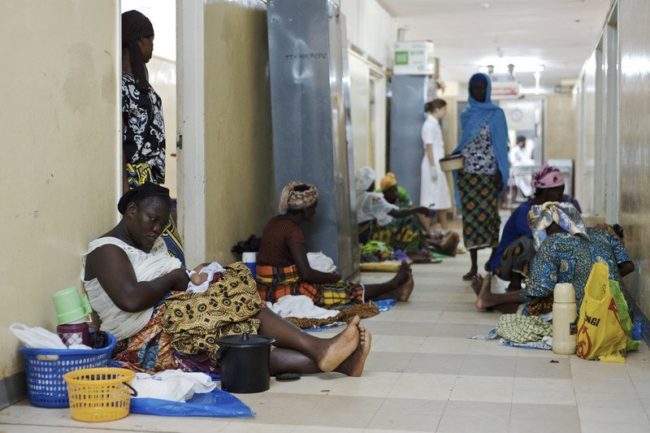
An already overstretched Ghanaian hospital pre-COVIDic times (Photo Credit: Prime News Ghana)
I would like to add my voice to concerns that some have have expressed recently about lessons that Ghana should draw from the coronavirus pandemic. This is crunch time for us. It is a wake-up call. There is no doubt that the health system in Ghana would not cope if we were to be faced with even a quarter of the cases that we have seen in countries like China, South Korea, Iran, Italy and Spain, to name but a few. Even Italy, with one of the best health systems in the world, cannot cope. The UK has adopted drastic measures because it recognises that its National Health System cannot handle the expected cases. Equally, the USA does not have enough test kits, ventilators, hospital beds, doctors, nurses etc. to manage the numbers expected.
Ghana’s health system is nowhere close to these countries. Even under normal circumstances, our public hospitals have low capacity—we struggle with shortage of beds, with many patients sleeping on the floor or in corridors. We cannot even deal with Malaria nor vaccines without going cup in hand to the Global Fund and GAVI. Yet, our politicians and governments over the decades have lived and continue to live in largesse. For example, for a small, debt-ridden, low middle income country like Ghana, we have well over 100 ministers, most of whom live in expensive houses in posh neighborhoods provided by the state and drive expensive cars (so-called V8s). Their favourite car, the Land Cruiser, costs about USD 135,000 to buy new. All of these ministers have two or more cars provided by the state.
It is not just ministers. I have seen parliamentary delegations travelling abroad, sometimes about 15 of them. They travel in Business Class. When you engage them in conversation, they tell you about some of their other trips to places like South Africa, the UK, Kenya etc. One gets the impression that they travel frequently and regularly. They get significant per diems on these trips and stay in expensive 4-star and 5-star hotels. I recall one such delegation on a trip to the UK, made up of MPs from the ruling party at the time and the opposition, not to mention their escorts. Most were in First Class, whilst the rest (the escorts) were in Business. Upon arrival at London Heathrow, there was a fleet of Mercedes cars on the tarmac from the Ghana High Commission to meet and collect them. Of course they did not go through immigration and customs like the rest of us did.
Add to the above the corruption and kick-backs from contracts and other rent-seeking activities and you get an idea of the scale of the loot and largesse. In consequence, infrastructure projects such as airports, roads, hospitals, electricity etc. cost twice or more what they should, to say nothing of procurement of routine and regular supplies across the country. These monies, amounting to hundreds of millions of US dollars, end up in the pockets of the politicians, public servants and their cronies.
I could go on, but now, consider what we could have done with such monies at a time like this with COVID-19. Consider the test kits we could have bought, the hospitals we could have built across the country, the isolation wards, the ventilators we could have procured, the number of doctors, nurses and other health personnel we could have trained and retained in Ghana—with all the extravagant spending, waste and corruption of the past three or four decades! We could have been like Singapore or South Korea but, no, our politicians, public servants and their cronies have chopped and wasted the money—and continue to do so.
I hope and pray that COVID-19 would be a wake-up call for all of us. I wish some smart Alec would identify and do an inventory of all the properties and monies, including those stashed abroad, of the politicians and public servants and ask them to account for them. Those that cannot be legitimately accounted for should be confiscated and auctioned, with those monies going into a special fund for development. It is crunch time. It is time for us to wake up!
_______________
COVIDic Times: BE AFRAID.
If we peeled the pandemic panic layer by layer what would we find lies beneath—what are people really afraid of? While not wanting to spread panic is there not a place for encouraging people to “be afraid”?
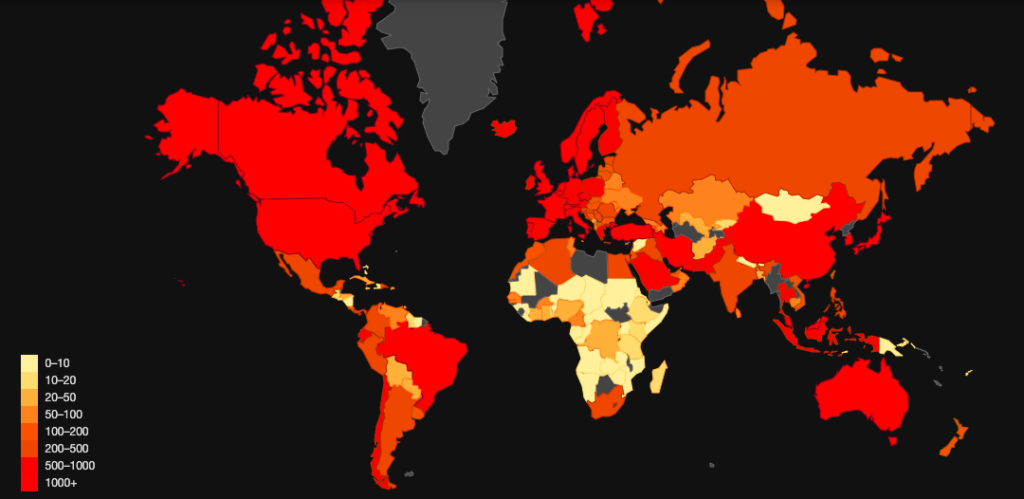
Map showing various degrees of the COVID-19 pandemic globally as of March 23, 2020 (credit: covid19info.live)
The tongue-in-cheek saying that everyone wants to go to heaven but no one wants to die seems rather apt in these COVIDic times. But really, what’s so bad about dying? Most people don’t seem to care enough about how many are recovering but rather fixated on how many are catching the disease and especially how many are dying. At the time of writing this article, the number of COVID-19 cases in the world was nearing 350,000 in 190 countries with approximately 15,000 deaths. These are not just statistics, numbers; they are real people made in the image and likeness of God, with families and friends to mourn them. May their souls rest in peace.
Much of the world is gripped in fear. But I’ve been wondering what people are really afraid of: is it getting sick per se or dying or what happens when they die? It is good to pause and ask yourself the same question, peeling back layer after layer until you find the root cause of any iota of fear that you might have/have had during this pandemic.
BE AFRAID
There have been many scripture verses and motivational messages to calm people down. This is the time preachers remind us that “there are 365 ‘fear nots’ in the Bible, one for each day of the year;” except 2020 has 366 days. Even governments have used hashtags like #SpreadCalmNotFear. While I’m of the preachy and motivational stock and have done my part to share love, spread hope, shout “fear not!” and even generate laughter amidst the virus storm I want to take a sober pause and say BE AFRAID.
Being afraid can be a good thing (or we will all do stupid things). But we ought to be afraid of the right things. It’s a good thing to be afraid to break the law, for instance, or to go after someone’s spouse. Not everyone likes Jesus Christ but no one, not even his sworn enemies, can ignore the fact that he is a real historic figure (it would be as ridiculous as saying Napoleon or Hitler never existed just because you don’t like him), was a prophet and miracle worker (two things both Christians and Muslims agree on), lived a perfectly upright life (unlike every other prophet) and teacher par excellence. Even in a raging storm (like COVID-19 has become in our day) he questioned his disciples”why are you so afraid?” while he rebuked the winds and spoke to the waves and stillness came.
In his often paradoxical pedagogy, once upon a time this teacher par excellence said not to be afraid and to be afraid in the same breath: “Do not be afraid of those who kill the body but cannot kill the soul. Rather, be afraid of the One who can destroy both soul and body in hell” (Matthew 10:28). What did he mean?
DEATH ISN’T WHAT YOU THINK
The new Coronavirus named SARS-CoV-2 that causes the disease COVID-19 can kill the body (your hardware). Ask Italians; 5,500 of them hav died already (at the time of writing). But it cannot kill the soul (your software). Yes, death is “the permanent ending of vital processes in a cell or tissue” or “cessation of all biological functions that sustain a living organism,” and that is good Biology, but death is more than that (according to ‘Soulogy’).
Many equate death with total annihilation. In other words, that once a person dies they just finish; disappear into thin air. C’est fini. That’s it. But no. Death actually means separation. Or as Finis Jennings Dake would put it, “a cutting off from realizing God’s purpose for which he was created. One can logically substitute the word separation for death in every scripture where it is used” (Dake 1991, 619). Consequently being tripartite beings–made up of spirit, soul and body–there are three kinds of death:
1. Physical Death–this is when your spirit and soul (inner man) are separated from your body (outer man). That is where biologically all functions, including brain function, that sustain a person cease permanently, from the micro (cellular) level to the macro (systemic) level. This separation of the soul and spirit from the body is the kind that as a medical doctor I would sometimes (unfortunately) be called upon to confirm: no breathing, pulse not palpable, dilated pupils not reacting to light etc. This physical death is what most people think about when it comes to the subject or our mortality, especially in these COVIDic times. But there is more.
2. Spiritual Death—this is the temporal separation of your spirit and soul from your Source/Maker/God. Or as evangelists like the late Billy Graham would plainly put it, separation of man from God because of sin. According to a Biblical worldview, the moment our forefathers Adam and Even sinned against God in the Garden of Eden, at that very moment (as promised by their Maker) they died. As a little boy I always used to wonder whether God lied about them dying as soon as they ate the forbidden fruit because they were very much alive after that, even running away from God! Now I know that what happened to them immediately was death alright–they were instantly separated from God—spiritual death. Their physical death came later. Hopefully, this makes us understand why since we as Homo sapiens are all descended from that first couple, all of us have inherited the spiritual genetic disease of sin and are born dead. Everyone of us is born separated from God spiritually, thanks to the pandemic from the virus SIN-00.
Paul puts it this way in his letter to the Christ followers in first century Rome: “for all have sinned and fall short of the glory of God” (Romans 3:23). He follows up with the consequences of this, three chapters later: “For the wages of sin is death, but the gift of God is eternal life in Christ Jesus our Lord” (Romans 6:23). Logically, therefore, if we are all sinners by nature and the salary for sin is death then we are all the living dead, from pope to prisoner, separated from our Maker.
3. Eternal Death—this, finally, is being separated from God forever in the lake of fire (hell). This, in scripture, is sometimes called “the second death” because follows “the first death” (physical death). Unlike spiritual death, this is eternal, forever. But eternal death is not entirely unavoidable. This will only happen to those who continue to live in their state of spiritual death until they physically die or Jesus Christ returns. If you remain in your state of spiritual death and you physically die you will eternally die. But there is a big IF because Paul again says that inspite of our state of spiritual death, “But God demonstrates his own love for us in this: While we were still sinners, Christ died for us” (Romans 5:8). God doesn’t just have love; God is love. He does not want anyone to be a victim of eternal death. “For God so loved the world that he gave his one and only Son, that whoever believes in him shall not perish but have eternal life. For God did not send his Son into the world to condemn the world, but to save the world through him.” (John 3:16-17)
Those who hear about Jesus Christ and believe in him as the Son of God who came to die in our place—beyond being a mere historical figure, prophet and miracle worker, righteous man, and great teacher as introduced above—receive his life in exchange; for the only reason he died as a perfect, sinless man was as a sacrifice for you and me. He died a temporal physical and spiritual death he did not deserve in order that you and I could receive eternal life rather than the death sentence on us because of our sinful nature (plus our own sinful deeds on top of that). To the legal luminary Paul, “If you declare with your mouth, “Jesus is Lord,” and believe in your heart that God raised him from the dead, you will be saved. For it is with your heart that you believe and are justified, and it is with your mouth that you profess your faith and are saved“ (Romans 10:9,10).
HOW TO NEVER DIE | THE CURE
So back to COVID-19, fear and Jesus. There is a virus (SIN-00), infinitely more dangerous than SARS-CoV-2 because it has eternal consequences, that has caused a spiritual pandemic with a manifestation of physical brokenness for thousands of years. Jesus Christ says do not be afraid of SARS-CoV-2 and its resultant disease COVID-19 which can kill the body (physical death) but cannot kill the soul (spiritual and eternal death). Be afraid of (or have deep reference for) the One who because of SIN-00 will at the end of the age, as a result of your own choice not to accept the free gift of eternal life, hand you your eternal ticket to a place of eternal separation from Him. I think inasmuch as the fire described in hell is horrific, the real penetrating eternal pain is the forever separation from Love—for God is Love. This is eternal death.
Who doesn’t like cures? Imagine it were announced today that there was now a definitive cure for COVID-19, not just the Chloroquine being experimented with now! How quickly people will line up for it! Well, let me tell you how to never die, COVID-19 or not.
One day a friend of Jesus called Lazarus physically died (you may read the story here). When Jesus arrived at the scene four days later he uttered to his sister one of the most amazing words ever spoken: “I am the resurrection and the life. The one who believes in me will live, even though they die; and whoever lives by believing in me will never die” (John 11:24-26). Understanding the three kinds of death finally allowed me to make sense of this profound scripture: the one who believes in Jesus will eternally live even though they may physically die; and whoever has overcome spiritual death (lives; now has eternal life) by believing in Jesus will never eternally die!
Then Jesus asked Martha, sister of Lazarus, “Do you believe this?” Her response was “Yes, Lord.” And she elaborated further, “I believe that you are the Messiah, the Son of God, who is to come into the world.” May I ask you too: “Do you believe this?” If not, be afraid.
Reference
Dake, Finis J. 1991. Dake’s Annotated Reference Bible. Lawrenceville, GA: Dake Bible Sales Inc.
POST SCRIPT
For those not in my social media circles you wouldn’t know just how much faith, hope and love I’ve been pouring onto the world. I feel the global body of Christ has been very pastoral in this COVID-19 pandemic (much needed, of course) but we ought not to forget our other hand/arm to be evangelistic as well.
It was at the third Lausanne Congress on World Evangelization, Cape Town 2010, that I heard for myself John Piper passionately proclaim the two truths with such wisdom and clarity: “…could the evangelical church say—we Christians care about all suffering, especially eternal suffering? I hope we can say that. But if we feel resistant to saying “especially eternal suffering,” or if we feel resistant to saying “we care about all suffering in this age,” then either we have a defective view of hell or a defective heart” (emphasis mine). Full script and video here.
God help Christ followers balance being pastoral and being evangelistic at this time; ambidextrously handling the rod and staff; flying with both wings of social concern and evangelism, “two wings of the same bird” for the blessing of all peoples of all nations and to God’s glory!
COVIDic Times: Don’t Pitch Faith and Science Against Each Other!
It’s never a good time to pitch religion and reason against each other but certainly not in a time of crisis, especially the kind of COVID-19 pandemic which requires “all [washed] hands on deck!”
Much of my time this morning was spent going back and forth debating on my Achimota School 1995 WhatasApp platform because one member forwarded what was purported to be a Tweet from a prominent Ghanaian journalist: “A country that invests in a $100 million cathedral, and not in medical research, can only pray in times of a global pandemic and hope to profit from the labs of countries that invest in science and technology.”
BLOW AWAY THE CHAFF
The last thing we want to be doing at this time is to pitch faith and science against each other, but before delving into that let me first quickly get rid of the disingenuity of the above statement which seems smart, even sassy, at face value. 1. The $100 million (if that is even accurate) is being raised by a Ghanaian Christian community that for the last 200 years has invested heavily not only in the faith of the Ghanaian people but in agriculture, schools, hospitals (including these supposed medical research centres) and the like. The government of Ghana isn’t raising the money for the cathedral–they gifted the land and seed money as their contribution but the body of Christ in the nation is doing the rest. 2. As I’ve stated elsewhere, nation building is complex: “We are building a nation here, a cohesive entity that must have spirit; not just a conglomeration of social services!” 3. Many of these countries that are being touted today as having ‘rather’ invested in science and technology have a rich faith heritage and foundation, including national cathedrals, that was part of the tide that raised them to where there are. Today they are becoming so secular to the point of amnesia! They ought to remember the rock from which they were hewn! 4. Throwing in a thorny issue at a time of national and global crises when the last thing we need is polarization is just not on; quite insensitive, actually. 5. To say one “can only pray in times of a global pandemic” is not only condescending and treating faith with disdain but unnecessarily pitting it against reason, faith and STEM. The last point is what I want to dwell on for the rest of this blog.
DOUBLE POWER
My immediate response to the said journalist’s statement is: The opposite is true also. A country that does not invest in the spiritual wherewithal of her people can only rely on science and technology, which evidently aren’t enough in the face of monstrous situations like the COVID-19 epidemic! Today, amidst the Coronavirus pandemic, doctors and scientists are using words like “hope,” “faith” and “pray.” Prayer is powerful; ask how I know!
Perhaps I’m in a unique position to speak to this issue as I am a medical doctor myself and a preacher. Double power! I prescribe medication but I also pray for people. Double power! The secular humanists only has science/technology; I have faith and science/technology. Double power! Why would anyone want to use only the right or left brain; one hand/leg instead of both (if they have them)? Why would any bird want to attempt to fly with only one wing? Why pitch faith against science when the same Lord God made both and wants everything in us and His world to be used for His glory? Double power, friends! That’s why I like the painting above that admonishes us to “wash and pray.” “Faith without works is dead,” said the apostle James. As my reverend minister likes to say, “Trust in God and lock your car.” God does miracles (the supernatural) on occasion and has also given us a bunch of principles for daily (natural) living.
Check out the double power response of Martin Luther (the Reformer) to one Rev. Dr. John Hess in a letter “whether one may flee from a Deadly Plague.”
FALSE DICHOTOMY
I have watched with amusement as various world leaders respond to the COVID-19 crisis. Again, I may be in a unique position in experiencing both ends of the spectrum as a Ghanaian (largely religious) and Canadian (largely secular). Within the same 24 hours, the Canadian Prime Minister (whose wife has tested positive and who is himself in isolation) made a broadcast admitting he was as flustered as everyone else but generously offering practical measures to curb the debacle, the Ghanaian president called a number of church denominational leaders to the seat of government (Jubilee House) to pray! I am one of the 13,000 who joined in that prayer meeting via FaceBook Live and I loved his opening remarks. He said (to paraphrase), yes we have put health measures, travel advisories, financial resources etc. in place but we need more–to call on the God of Heaven as other leaders and nations have done throughout history and even now (we know the United States presidency also called for a national day of prayer on Sunday March 15). The Ghanaian president’s kind is an endangered species, one of few in the modern world who do not separate the physical and spiritual realms.
Consider Myers’ table above. How did we get here, to a place where the modern worldview is so dichotomous?! Pitching faith and reason against each other goes back centuries, perhaps peaking during the Enlightenment (17th to 19th century) in Europe. Yet we forget that Newton, Kelvin, Faraday and a host of other scientists were people of faith, specifically of the Christian faith. Does one’s faith make them a better or worse scientist? Of course not all scientists have faith–such is the beauty of the free will of humankind.
CONCLUSION
Faith leaders, this is not a time to be playing down rigorous reasoning and true science (for o yes, there is such a thing as pseudoscience) and flouting the basic public health protocols provided. Secular leaders, this is not the moment to look down on people of faith–who knows, their prayers may be keeping you alive!
I am right-handed but would hate to be only one-handed! I am a person of faith and reason, science and religion. I admit that Truth tends to be paradoxical and managing the tension between two ends isn’t a comfortable place to be but I’d rather fly with both wings than attempt to soar on one alone–impossible! Again, let’s not fall for the tyranny of the ‘or’ but embrace the genius of the ‘and’ (Jim Collins). Wash your hands and clean your hearts. Social distancing doesn’t imply spiritual distancing. Pray hard as if everything depended on God (it really does!) and work hard (especially those of us on the medical frontlines as well as in the background slaving away in labs trying to make vaccines) as if everything depended on you (humanly speaking, it does).
In many things, our world is polarized: female versus male, poor versus rich, secular versus sacred, spiritual versus material, church versus state, private versus public, evangelism versus social action… Please let’s not add science versus faith, especially in this time of crisis!
Reference
Myers, Bryant L. 2011. Walking With the Poor: Principles and Practices of Transformational Development. Maryknoll, NY: Orbis Books.
What Transpired in Court: a Blow to Blow Account
The day after my trial I sent a newsletter to all my family, friends and ministry partners around the world who had been praying for righteousness, truth and justice to prevail, giving them a ‘blow to blow’ account of happenings on that eventful day, November 28, 2018. You may read it here. Acquitted! Discharged!! Free!!!

